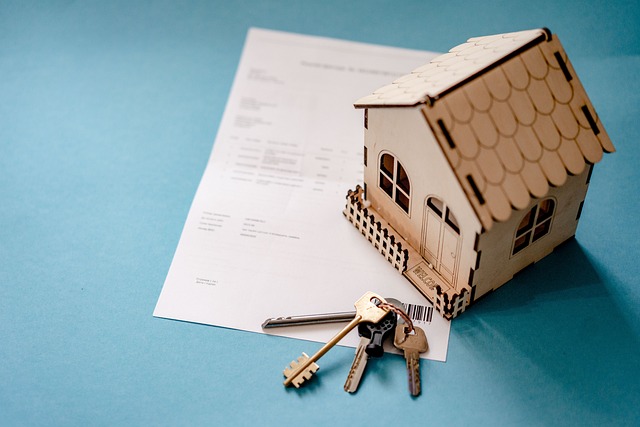Whether you’re new to the property market or planning your third or fourth more, there’s still a long list of things you’ll need to consider before taking the plunge.
However, it’s the people taking their first steps on the housing ladder who’ll face the steepest learning curve.
If only there was a list of tips, tricks and words of wisdom to help you on your way? Oh, there is, and it’s right here!
Hopefully this checklist of some of the things to consider when buying a home and the costs involved will help you budget accordingly and make the process as smooth and seamless as possible.
Work out what you can afford to spend
The number one piece of advice for home buyers is to set a realistic budget and don’t spend more than you can afford.
Setting your heart on homes that are out of your price range and that will lead to your mortgage application being rejected by your lender, will only create a cycle of disappointment and frustration.
Only view properties that you know you can definitely afford. That way, if you are smitten by a property you’ll know you have a realistic chance of buying it, unless you’re outbid of course.
Getting a mortgage pre-approval or agreement in principle is a great way of finding out how much you could borrow without it affecting your credit score.
It means you can be confident about how much you can afford to spend on your property before you get emotionally attached to a home.
If you buy a property only to realise you can’t afford the mortgage repayments you could end up losing your home and damaging your credit score.
According to the Financial Conduct Authority, around 200,000 UK households fell behind on their mortgage repayments in 2022.
Plan for home survey / inspection costs
So, you’ve found a property you’re seriously interested in, and everything looks good.
But what about any problems that may lie beneath the surface? Are there any hidden issues with the property that could leave you with a hefty bill later on?
It’s important that you hire a qualified property surveyor to take a thorough look at your would-be new home before you sign on the dotted line.
They’ll provide you with a HomeBuyer inspection report highlighting any issues with the property that will need addressing.
This can both help you plan for future expenses and act as a negotiating tool if you still plan to go ahead with the purchase.
The cost of a property survey depends on how deeply you want the surveyor to look.
You can generally get away with a simple report for a new, well-maintained property, but you’ll need something more thorough for an older property or a renovation project.
Be aware of potential hidden costs
You might have carefully studied your home inspection report, and considered every aspect and cost of the home moving process, but there’s still the potential for additional hidden issues to crop up.
When your offer on a property has been accepted and you’ve employed a conveyancing solicitor to start the formal sale process, they’ll carry out something called property searches.
This is where enquiries are made to the local authority in the area to give you further information about the property you’re buying.
This will look at issues such as:
- Flood risk
- Water and drainage
- Planned future developments in the area
- Access rights impacting the property
- Contamination risk from landfill/industrial sites
- The planning history of the area
- Chancel liability – a medieval scheme to cover church repairs
Not only will you need to budget for the cost of a conveyancing solicitor, but many of the searches they’ll perform have the potential to have a significant impact on the future value of your property.
So, it’s important to choose a well-reviewed conveyancing solicitor and to read the conveyancing report carefully.
If the search reveals a significant issue, such as a high risk of flooding or significant ground contamination, it might be worth pulling out of the deal altogether.
You’ll lose the cash you’ve spent so far on your property survey and conveyancing solicitors, but you’ll potentially save thousands in the future and avoid being stuck in a house that’s virtually unsellable.
You may also like: More hidden costs of moving home to look out for
Plan for all the essentials
Buying the actual property is of course the most expensive part of moving home, but there are many other costs to consider as well.
Being aware of what you need to budget for in addition to the deposit, mortgage and Stamp Duty (if applicable), and estate agent fees, if you’re using one, will hold you in good stead and help you avoid any nasty surprises.
Just some of the things to consider include:
- Removal company costs (including packing materials)
- Home and contents insurance
- Council Tax
- Furniture and new fixtures
- Essential white goods
- TV and broadband services
- Post Office mail redirection
- Utility bills (gas, electricity, water)
- Decorating materials
- Gardening materials and tools
- General repairs and upgrades
Plan for spiralling project costs
If you’re buying a property that’s in need of significant repair as a project you need to carefully plan your costs – and then add some more.
In my experience it’s rare for building projects to come in under budget and even rarer for them to hit the budget exactly.
As a rule of thumb you should cost the work then add an additional 10-20% depending on what you can afford as a contingency fund.
This is particularly important if you’re planning to hire builders for some or all of the project as you don’t want them walking off site before the work’s completed because you’ve run out of money.
Plant for the future as well as the present
What may seem like the perfect home now may not suit your family in a few years’ time.
Always consider how the property will work in the future, or how you could make it work by reconfiguring or extending it, before you commit to the purchase.
Given the huge costs of property transactions, you want to be sure that the home will fit your circumstances for many years to come, especially if you’re planning to start, or expand, your family.
Considerations such as school catchment areas and access to transport links and places of employment are all important factors.
Consider if the home has the potential for another room to be added if a baby arrives or you find yourself working from home.
Taking time to plan ahead will prevent you from having to move again in the not too distant future to accommodate your changing circumstances and save you a large chunk of cash in the process.
Think location, location, location
If you’re fallen in love with a house but it’s not in a great location, should you still buy it?
While buying property can be an emotional experience, you should try to keep your business head on as much as possible otherwise you could make an expensive mistake.
The appeal of your home will quickly fade if it becomes a nightmare to get to places, adds a lengthy time to your commute to work or means you can’t get your child into your preferred school.
If you’re impacted by these things, then any future buyer will be as well, and you may find that the property is difficult to sell for these reasons.
It’s better to choose a less appealing property in a better location – you can also make changes to it to improve its appeal and put your stamp on it.
Be prepared to compromise
Compromising is part of everyone’s home search, unless you have unlimited funds!
For example, many people will buy a smaller, less attractive property if it means they’re in the catchment area for a high performing, sought after school.
For some people, good transport links are important, while others want to be close to shops and other amenities.
Whatever your personal circumstances you’ll have to make some hard choices when buying a property and it’s unlikely you’ll get everything you desire.
It’s a good idea to write a list of priorities, with the most important ‘deal-breakers’ being at the top.
If you can satisfy a few of your most important requirements and stay within budget then you’re doing well.
Remember, you can always extend or reconfigure your property further down the line to turn it into more of a dream home.
Build a fund to pay for repairs and maintenance
While owning a home can instil feelings of satisfaction and security, it’s fair to say they can be sources of stress as well.
When budgeting for buying a home, you need to consider the ongoing costs of repairs and general maintenance.
As any homeowner will tell you, houses are money pits and can quickly drain your bank account as the years go by.
If you’re cash-strapped it’s easy to let the issues stack up and you could find your home falling into a state of disrepair.
This will make you unhappy living there and will also have a significant impact on its saleability if you’re planning to move.
That’s why it’s important to keep a contingency fund to pay for repairs as and when they crop up, together with ongoing maintenance issues.
Setting aside £150-£200 per month is a good starting point if you can afford it.
This will ensure you’ve got the funds to hand in the event of an unexpected repair.
Adding value to your property
Along with generally keeping your home in good order and keeping on top of repairs and maintenance issues, you should consider how you can add value to the property and budget for it accordingly.
Projects that can help you build equity include:
- Landscaping the garden
- Widening the driveway
- Building a conservatory
- A loft conversion
- A garage conversion
- An extension
- Building a home office
Not only will these improvements add value to your home further down the line when you come to sell, but they’ll also help accommodate your changing circumstances while you’re living in the property.
If you’re looking to grow your equity to eventually afford a larger property, adding value to your home is the ideal way of doing this.
To give you an idea of how much value you can add by improving your existing home, building an extension can increase it value by around 15%. A high spec home office, for which there is a growing demand, can add up to 8%.
Also ensure that you’ve established if your home is at risk of flooding before adding an extension as the local authority make reject your application if you’re in a flood zone.
Consider the age of the house
Some people love the idea of living in a period property that’s oozing character rather than a sterile new build.
But this charm can come at a significant cost in the long run as older houses generally need a lot more maintenance work.
Paying for a detailed property survey on an older property is essential before you make an offer.
But even if this doesn’t show anything too disastrous, you should still plan for a larger maintenance budget than you would need for a new property.
Equally, the cost of extending or renovating an older house is generally more and can often reveal hidden issues that weren’t shown on your HomeBuyer report.
You should also check if the property or any buildings in the grounds are Listed. If they are, this could prevent you from carrying out the alterations you’d like to.
Don’t think of your home as your retirement fund
Your home is part of your estate and thus your wealth, therefore it’s natural for many people to consider it part of their retirement fund.
But the reality is that unless you’re planning to downsize in later life or use equity release to fund your living or care costs, it shouldn’t be considered part of your pension.
After all, where are you going to live if you sell your home to pay for your retirement?
Only people who have another property or properties could really count them as part of their retirement plan.
So, when you’re planning to buy a property it’s best to think of it as a separate entity to your pension, unless it’s an additional investment property to the one you live in.
Conclusion
The key to staying on top of the cost of buying and maintaining your home is planning and budgeting.
Putting aside a regular amount each month to create a contingency fund is the best thing you can do.
Also, addressing issues as and when they arise rather than letting them build up is crucial to keeping your home in good order.
The more you nurture and look after your property now, the better position you’ll be in when you come to sell.











